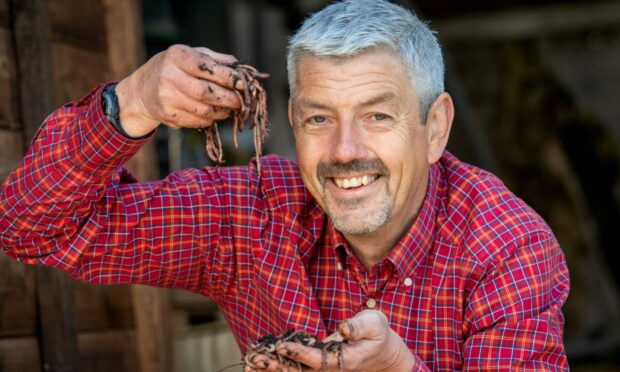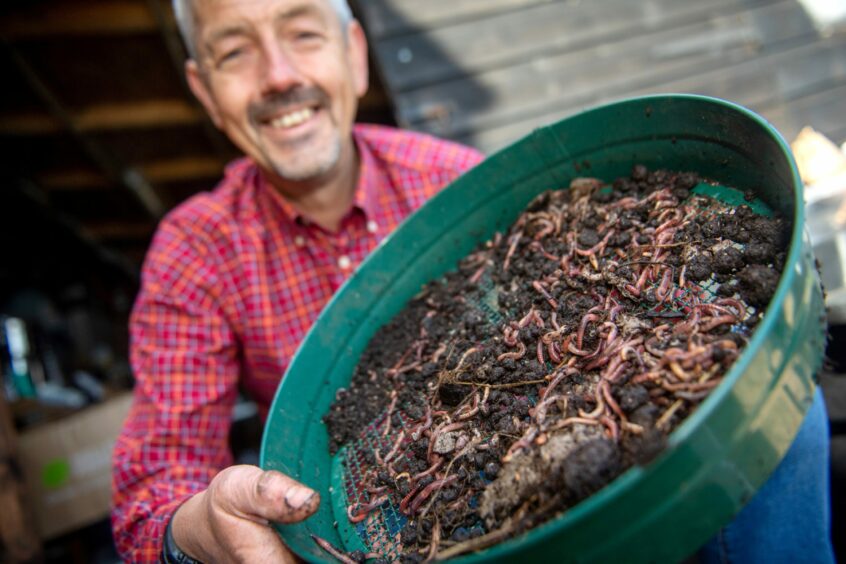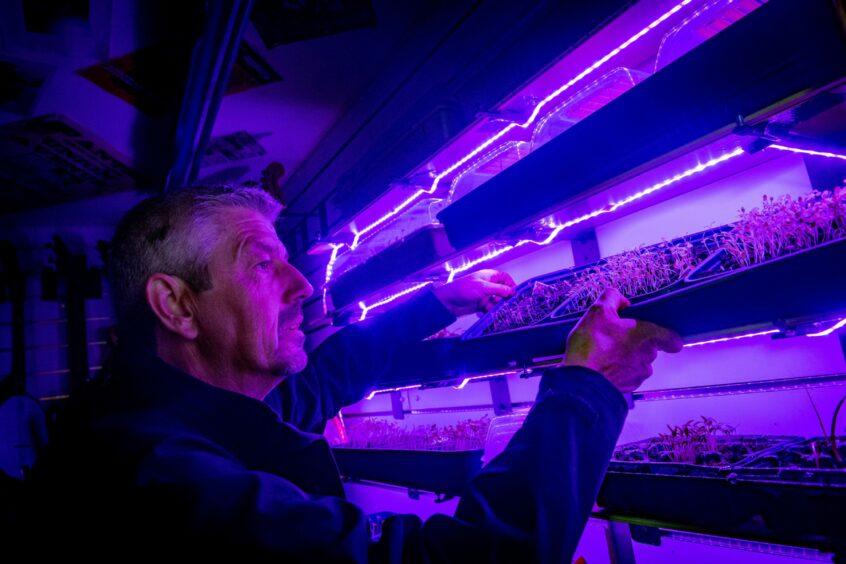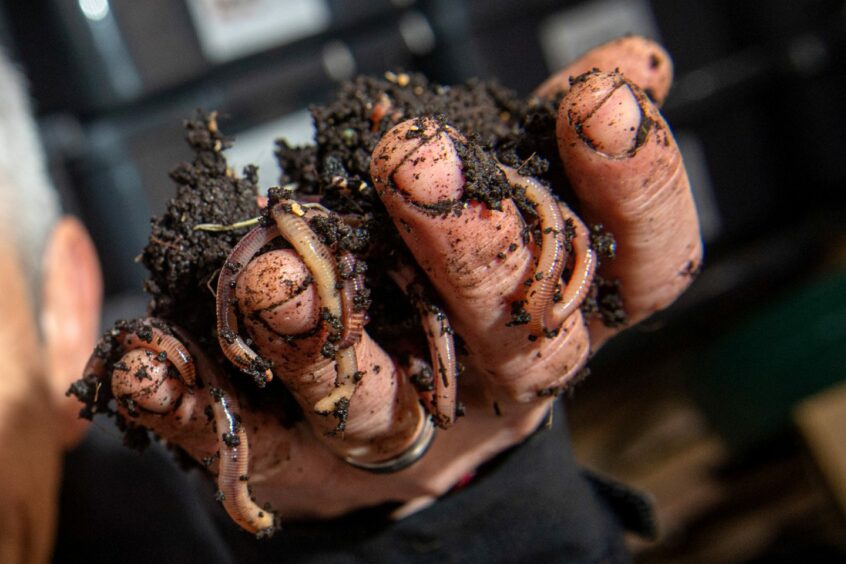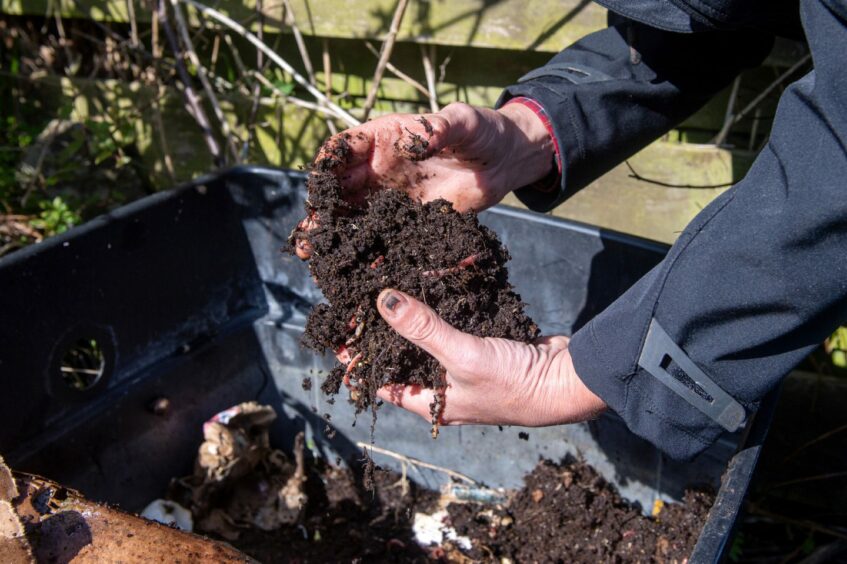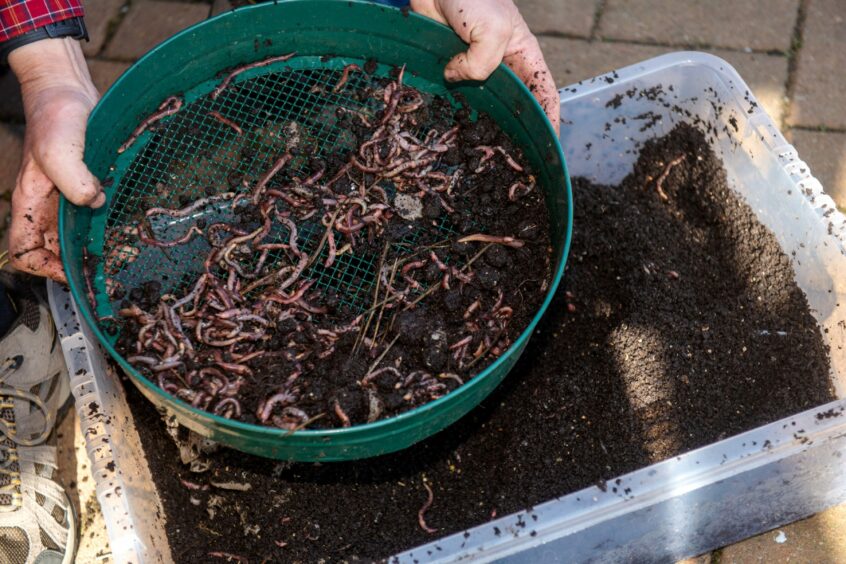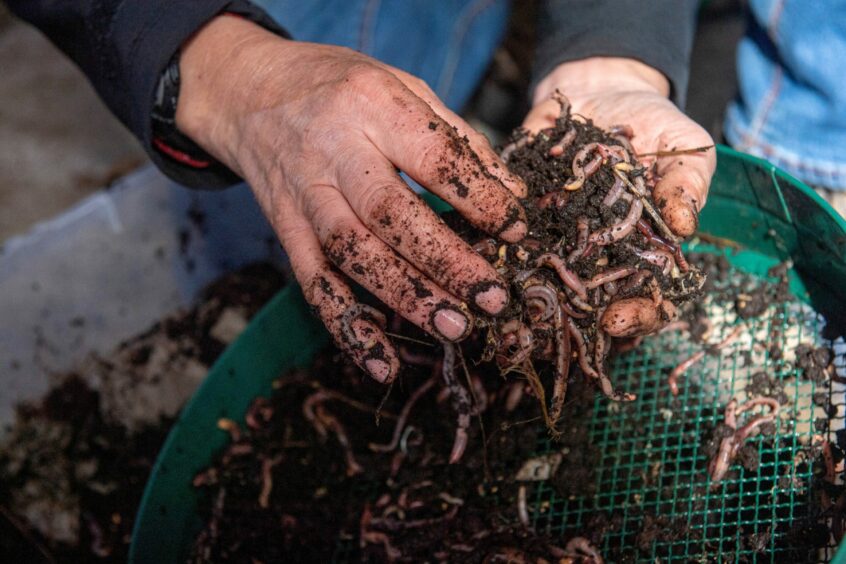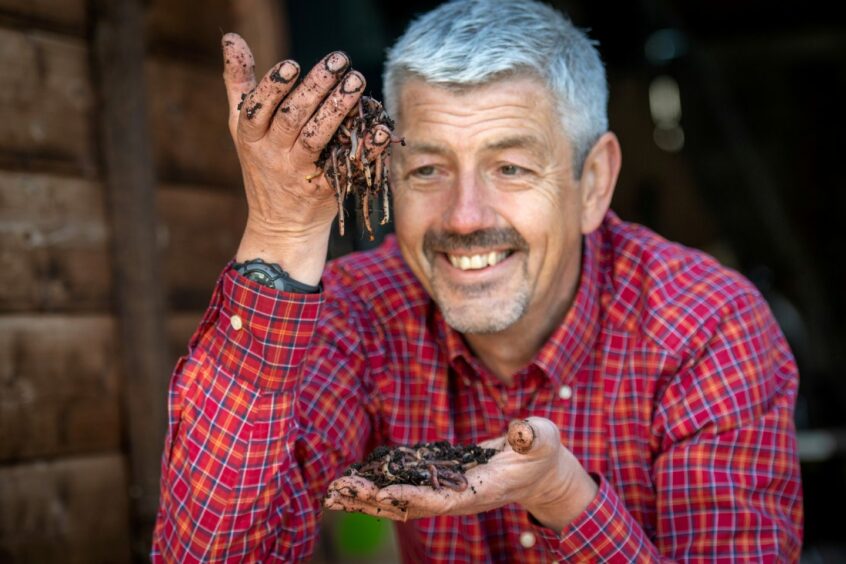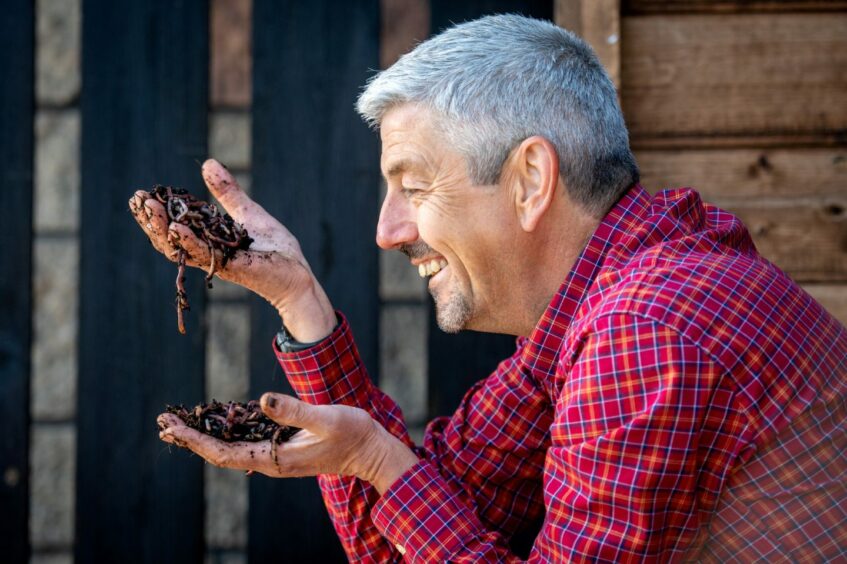What has five hearts, can break down hair and produces poo which is likened to “black gold” by those in the know?
The humble garden worm of course.
These wriggly creatures might not be to everyone’s liking, but they’re actually pretty incredible.
From laying eggs in a cocoon to travelling 12 metres an hour, worms are impressive and there’s not much that Scott Baxter doesn’t know about these invertebrates.
So passionate is he about the worm’s many talents, that he has launched his own business which is centred around a worm farm.
The wormery wizard believes worms can offer ancient solutions to modern-day problems, and his services are in high demand.
From working with businesses such as Two Racoons to break down waste, to collaborating with research institutions, Scott is hopeful that worms can wriggle into the spotlight.
Or perhaps be celebrated under the cover of darkness, given that they’re not a fan of daylight.
We paid a visit to Scott’s worm farm at his home in Newburgh, and found out how to harness the power of the worm for good.
“I think I’ve got the fattest blackbirds in Newburgh,” jokes Scott, and he’s not far wrong.
Blackbirds and a determined robin are picking through the flowerbeds, which offer their own personal all-you-can-eat buffet.
Change of career
Scott never expected to turn his love of worms into a career, having worked in an entirely different industry.
“I was an area manger for a social care charity. I worked in health and social care for 35 years,” says Scott, who worked with both Cyrenians and Instant Neighbour.
“Worms started as a hobby 20 years ago, when I was looking at ways to break down garden waste.
“I think there are two types of folk.
“They’ll either say ‘eurgh, worms’ or be absolutely fascinated.
“I think it can come down to remembering your big brother chasing you with worms when you were a kid.
Nature’s gardeners
“Worms can do amazing things for your soil and can break down waste relatively quickly.
“They produce this amazing growing medium which accelerates growth and germination.
“That means you have healthy plants, so you don’t have to use fertiliser.”
Speaking of fertiliser, it has had a massive impact on the worm population alongside large-scale ploughing.
“Some people will say to me that they don’t have worms in their garden,” says Scott.
“It can be feast or famine; there has been a decline over the last 60 years which is largely down to the use of synthetic fertiliser.
“Worms can indicate good healthy soil and a lot of positive bacteria which is good for the eco system.”
Worms may not be the bonniest creatures to behold, but that doesn’t mean they don’t have an important role to play.
Sat-nav in the soil
“I think of worms as a poor relative to the bee,” says Scott.
“The bees get all the attention, but if there wasn’t good soil then you wouldn’t get the flowers.
“Worms have been around for 200-300 million years.
“They are our soil engineers and there’s so many interesting facts about them.”
Did you know that worms have no teeth or eyes, but have a fantastic in-built navigation system?
“They use smell to get around, and worms are also hermaphrodites so they have both male and female cells.
They can also sense themselves over and under-populating, and will start breeding if even a handful worms have been removed from a compost bin.
“There’s around 2,000 species in the world, but in the UK we have three main types,” says Scott.
Depending on where you look, you may come across surface dwellers, sub surface or the more tricky to find, deep burrowers.
Local businesses have become switched on to a worm’s skillset, and Scott also works with schools in order to educate the next generation.
“It’s great fun seeing pupils get so engaged,” says Scott.
Educating next generation
“One of the most significant benefits of worms is that they help to improve soil structure by breaking down organic matter and creating channels for water and air to penetrate the soil.
“This makes the soil more fertile, allowing plants to grow stronger and healthier.
“Children can appreciate how these tiny creatures can have a significant impact on the health of the soil and the plants that grow in it.”
For the keen gardeners, worms also have another intriguing benefit.
“It’s a secret amongst gardeners, but worm poo is like black gold,” says Scott.
“This is because it is heavily laden with plant-ready nutrients and minerals.
Unusual money maker
“There’s a big market for worm poo, and its value is particularly recognised by specialist growers,” says Scott.
“I am the only worm business registered in Scotland, and I love working with so many different businesses in the community.
“The worms have been busy fermenting some of the waste from Two Racoons, a sustainable business which turns surplus fruit into wine.
“I also get coffee grinds from different cafes, egg shells from the local bakers and hair from the hairdressers.
“Honestly, there’s more to worms then meets the eye.”
